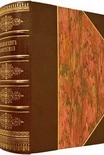Raft of Stars by Andrew Graff (ebook reader below 3000 txt) 📗

- Author: Andrew Graff
Book online «Raft of Stars by Andrew Graff (ebook reader below 3000 txt) 📗». Author Andrew Graff
“I suppose I’ll get in there now,” said Bread. His shakes had nearly stopped. “Seems quiet.”
“Okay,” said Fish. He felt himself swallow.
They were always awkward about parting when Bread had to go home. It was as if they were strangers, unable to do much besides formally shake hands and bid the other farewell. They shook hands now and nodded, and Fish wiped his hands on his jeans and swung a leg over his bike. Bread laid his bike in the weeds and stepped up the concrete porch. He looked small and dried up, like those turtles looked, bowlegged and weak like that calf was. And Fish felt dried up and weak for abandoning him again. He hated it. The world was too full of coyotes and calves. Something had to change. Something firecracker big. Fish’s mom said the most powerful thing a person can do in this life is to pray, that ours was a “God of well-timed miracles.” Fish believed that was true, or wanted to. But always after waiting for what seemed long enough, he’d stop believing, like so many other people seemed to do but never talked about.
The door to Bread’s house rattled tight, and Fish pedaled as hard as he could down the gravel street. Every time he left Bread, he’d race his bike back to his grandpa’s farm, trying to pray for help, or trying not to, until the quiet of the fields and fireflies offered its solace again. This time, though, something different happened inside him. This time, from somewhere or something, a reply seemed to come from all that stillness and sky. He couldn’t hear it, but it was spoken somehow, this crystalline understanding. Fish was the change being sent. It was loud enough to make him lock up his coaster brake in the gravel. Stars aligned overhead. The moon and crickets waited.
Fish clenched his fists on his handlebar tape. He wasn’t going to leave Bread this time, and the bravery of that thought seemed so foreign to him it was almost as if it belonged to someone else. But it didn’t. It belonged to him. Maybe it was because he’d known Bread for three summers, and Bread had become more like a brother than a friend. Maybe it was because Fish was ten years old now, and would turn eleven by fall, and there was a very big difference between the heart of a boy turning ten and one turning eleven. Maybe it was because he’d overheard his grandfather, a good and strong man, declare him good and strong. Something deep in his gut, something bright and dangerous and match-like, made him stop on that road. And it felt right and made his heart hammer like it did when he rode out with his grandpa to kill coyotes.
Fish looked out toward the marshes. Then he looked back at Bread’s house. The moon witnessed the decision. Fish turned his bike around.
Two
THE DOOR OF THE SIT & GO GAS STATION TWO MILES NORTH OF Claypot swung open, and two men walked in from the purple dusk—one a thickset farmer wearing dirt-caked coveralls, a John Deere ball cap, and incredibly thick glasses, the other a man in his early thirties, tall and wearing a vest with a badge, a radio and pistol on his belt, a cowboy hat on his head.
Tiffany Robins looked up from where she leaned behind the counter. Her eyes brightened at the sight of the taller man. She’d been reading her latest library loan, a book of poems by Emily Dickinson, one about the author’s life compared to a loaded gun, a thing so latent and potent, ready to be lifted from its corner and fill the hills with echoes. Tiffany tried to imagine herself as a gun, even a great big shotgun like Dickinson seemed to do, but the best Tiffany could muster was an image of a beat-up rabbit rifle, her dad’s .22, the only gun she’d ever really handled, and that before her parents divorced. Upon spotting the sheriff, Tiffany hid the book and stood to pull her dark green sweater down to the hips of her jeans. She smiled and tucked her purple hair behind her ears. Last night, out of boredom, she dyed a few highlights in her bathroom. She regretted it even as she was dyeing it, just as she did the time before that, and she regretted it even more now that the sheriff was here. She didn’t need the man, but she did wonder about him and had for some time. She reminded herself that she’d proved her independence last year, during a hungry summer spent alone in a tent, but she remained unconvinced.
“Hey, Sheriff Cal,” she said, trying not to sound overeager, looking forward to hearing him say her name. She loved his Texan voice, the way it carried hints of sweet tea and rattlesnakes and desolate places. This close to Wisconsin’s northern border, a man from Texas was downright exotic.
“Hey, Tiff,” said the sheriff, in midconversation with the older man. The smell of leather and sweat and manure swept inside with the men. “I’ve told you ten times, Burt, I’ve got no authority to tell game wardens to back off. If they don’t want you shooting coyotes on public land, they don’t want you shooting coyotes on public land!” The





Comments (0)